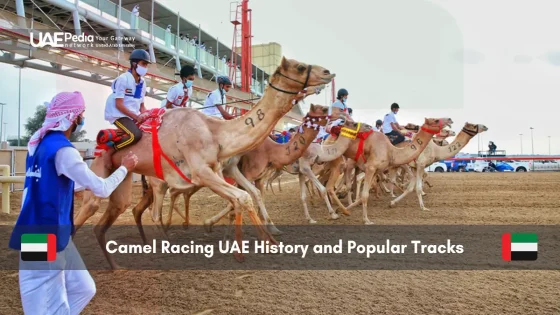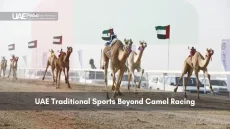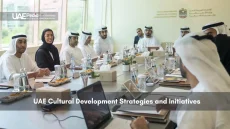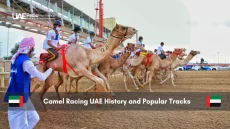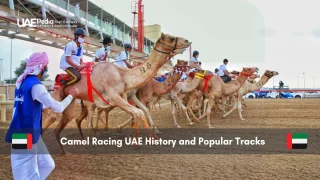Did you know that over 27% of UAE families still prioritize cultural celebrations featuring centuries-old activities? These aren’t museum relics—they’re living traditions passed down through sand-dusted hands and laughter-filled afternoons.
The desert’s vastness shaped more than the landscape—it birthed sports blending survival skills with pure joy. Think camel races evolving into community spectacles, or stick-and-stone games once used to teach navigation now sparking friendly neighborhood rivalries. This heritage thrives in modern Emirati life, connecting kids to their roots while creating new memories.
From coastal towns to bustling cities, you’ll find families bonding over these activities during family gatherings and festivals like Al Dhafra. They’re not just games; they’re time capsules preserving values of teamwork, resilience, and cultural pride. Our guide walks you through their origins, current popularity, and where to experience them firsthand.
Key takeaways:
- Cultural threads woven into daily play
- Desert ingenuity behind iconic sports
- Community events keeping traditions alive
Reviving the UAE’s Cultural Heritage Through Play
Imagine a desert sunset where children’s laughter mingles with the rhythmic thud of camel hooves—this is where history breathes through play. Centuries-old activities born from necessity now pulse with modern energy, teaching values sharper than a Bedouin’s falconry blade.
Historical Roots and Timeless Traditions
Desert life demanded ingenuity. Falconry began as hunting technique—Bedouins training raptors to catch food in sparse landscapes. Camel racing evolved from vital transportation methods, with speed determining a tribe’s survival during migrations.
“A falconer’s bond with their bird mirrors our connection to the land—both require patience, respect, and shared purpose.”
These practices transformed into community events by the 20th century. Abu Dhabi’s annual Al Dhafra Festival showcases this shift, turning survival skills into dazzling displays of heritage. Families gather as ancestors did, cheering races that once determined life-or-death outcomes.
How Traditional Sports Shaped National Identity
Three elements fused these activities into cultural cornerstones:
- Shared Values: Falconry teaches focus; camel racing demands teamwork
- Intergenerational Bonding: Grandparents coach grandchildren using methods unchanged for generations
- National Pride: Emirates compete friendly-style, uniting through ancestral sports
Modern competitions retain their soul. Robotic jockeys now guide racing camels, blending innovation with tradition. Yet the essence remains—celebrating skills that turned desert challenges into triumphs.
Traditional games UAE: A Glimpse Into Timeless Pastimes
Generations of Emirati kids have turned seashells and palm fronds into tools for laughter and learning. These playful rituals aren’t just entertainment—they’re secret codes preserving desert wisdom through every sprint and strategy session.
Childhood Memories and Local Favorites
Take Ghommemah, the region’s answer to hide-and-seek. Kids dash between date palms, their giggles carrying stories of ancestors evading desert predators. Then there’s Fashkhah, where stone-tossing accuracy becomes a test of focus—skills pearl divers once needed to spot oysters in murky waters.
Modern neighborhoods still host carrom board battles that crackle with competitive joy. This tabletop activity blends chess-like strategy with finger-flicking precision, its polished wood surfaces bearing decades of family rivalries. “We’d play until our fingertips turned red,” recalls Dubai native Mariam Al Mheiri. “Grandparents always said it trained us for life’s sudden curveballs.”
Community events keep these traditions thriving. Annual racing competitions using handmade toy dhows honor maritime history, while sandpit challenges mirror the endurance required for survival in arid landscapes. Each game becomes a living bridge—connecting PlayStation kids to ancestors who turned scarcity into creativity.
“Our playtime whispers what textbooks shout: how to adapt, persist, and find joy in simplicity.”
Exploring Iconic Traditional Sports and Games
Thunderous applause erupts as robotic jockeys streak across Al Marmoom’s camel racing track—a scene where Bedouin ingenuity meets 21st-century tech. These heart-pounding spectacles blend ancestral skills with modern thrills, drawing crowds as diverse as the Emirates’ skyline.
Camel Racing, Dhow Sailing, and Their Cultural Impact
What began as wedding-day contests now unfolds on mile-long tracks with solar-powered cameras. Camel racing’s evolution mirrors the UAE’s journey—once reliant on animal speed for survival, today celebrating it through organized competitions broadcast globally. Robotic riders weighing under 3kg have replaced child jockeys, yet the camels’ thundering gait still quickens pulses.
On Dubai Creek, weathered dhows transformed from pearl-diving vessels to racing champions. Crews battle currents using techniques unchanged for centuries—though GPS now aids navigation. “Sailing these boats connects us to our grandfathers’ struggles,” says champion sailor Khalid Al Remeithi. “Every race honors their legacy.”
Falconry, Horse Racing, and Endurance Competitions
Falconry’s shift from survival tactic to high art dazzles at Abu Dhabi’s International Hunting Exhibition. Handlers spend years bonding with birds that once hunted desert hares—now soaring through obstacle courses for prestige. Similarly, horse racing events like the Dubai World Cup mix Bedouin-bred stamina with million-dollar prizes.
Modern twists deepen these roots. Night-vision goggles assist falconers, while endurance riders track mounts via satellite. Yet the core remains: skills honed in harsh landscapes now unite communities and thrill visitors. For budget-friendly adventures, nothing beats cheering these living traditions under open skies.
Mastering the Art of Traditional Sports in the UAE
Ever watched an arrow slice through desert air, hitting a target smaller than a date pit? That’s centuries of mastery in motion—no apps required. These disciplines demand more than raw talent; they’re living conversations between past and present.
The Skill and Patience Behind Archery and Shooting
Bedouin hunters once relied on handcrafted bows to secure meals and defend tribes. Today’s competitors train with that same intensity—modern tournaments test focus forged in survival scenarios. Precision isn’t accidental: archers practice daily, analyzing wind patterns like their ancestors tracked gazelle herds.
“Hitting the mark requires three things,” explains Al Ain Heritage Club instructor Rashid Al Mansoori. “Steady hands, calm breath, and respect for those who taught you.” Firearm competitions echo this ethos, transforming ancient defense tactics into celebrations of discipline.
Free Diving and Saluki Racing: Celebrating Endurance
Pearl divers’ lung capacity gets a modern spotlight in apnea contests. Athletes plunge 30 meters without oxygen tanks, honoring ancestors who harvested oysters under crushing pressure. It’s not just physical—mental grit separates champions from participants.
Then there’s saluki racing, where sleek desert hounds blur across sands at 40 mph. Handlers spend years bonding with these dogs, whose speed once determined a tribe’s hunting success. Key elements make this sport UAE enthusiasts adore:
- Genetic lineage tracing to 7th-century breeds
- Custom diets blending camel milk and lean meats
- Post-race massages using aromatic oils
From breath-holding marathons to dhow sailing tactics, these activities prove endurance isn’t inherited—it’s earned through sweat and sunsets. As one champion free diver told us: “The sea doesn’t care about your trophies. It demands your full presence, every time.”
The Evolution of Traditional Sports Amid Modern Trends
Between Dubai’s glass skyscrapers and Abu Dhabi’s mangrove-lined shores, ancestral athleticism finds new life through innovation. Heritage sports now share spotlight space with Formula 1 races and eSports tournaments, creating a cultural cocktail that thrills both locals and visitors.
Blending Heritage with Contemporary Recreational Activities
Modern Emirati athletes train with GPS-tracked camels while wearing smartwatches—a far cry from desert navigation by stars. Yet the essence remains: sport here bridges generations. Take the Dubai World Cup. This global event pairs camel endurance trials with thoroughbred horse races, drawing crowds who appreciate both heritage and high stakes.
Specialized clubs now offer high-tech twists on ancestral pastimes:
| Activity | Traditional Element | Modern Upgrade |
|---|---|---|
| Camel Racing | Bedouin breeding techniques | Robot jockeys & drone cameras |
| Dhow Sailing | Wooden hull construction | Hybrid engines & weather apps |
| Archery | Hand-carved bows | Laser-guided target systems |
Social media transforms local competitions into global spectacles. A recent desert endurance race trended worldwide when influencers live-streamed competitors battling sandstorms. “We’re not just preserving history,” says Al Ain Sports Club coach Amal Khamis. “We’re rewriting it for Gen Z—with better Wi-Fi.”
Want to experience this fusion? Attend the Dubai World Cup’s heritage zone, where you can pet champion racing camels minutes before watching $35 million horses thunder down the track. Or join cultural legacy tours that pair dhow-building workshops with sunset cruises on LED-lit traditional boats.
Cultural Significance and Community Spirit in UAE Games
When the sun dips below Abu Dhabi’s skyline, families gather not for screens but for something far older—the thrill of a falcon’s dive or the splash of a traditional boat cutting through waves. These moments stitch communities tighter than a Bedouin tent’s seams, blending laughter with lessons from the past.
Social Bonding Through Age-Old Competitions
Weekly camel races and seasonal boat racing festivals turn strangers into teammates. Expatriates cheer alongside Emiratis as dhows glide across Dubai Creek, their wooden hulls echoing centuries of maritime heritage. “These aren’t just competitions,” says veteran sailor Ahmed Al Fahim. “They’re shared stories written on water.”
Hunting skills once vital for survival now unite generations. Falconry clubs host intergenerational workshops where grandparents teach youngsters to read a bird’s body language—a silent dialogue between human and hunter. The birds themselves, prized falcons with lineage tracing to desert royalty, become feathered ambassadors of cultural pride.
Preserving Desert Traditions in a Modern World
Abu Dhabi’s pearl diving festivals transform history into hands-on experiences. Visitors learn knot-tying techniques used by divers who once fueled the region’s economy. What was once backbreaking labor now sparks awe during moonlight reenactments along the Corniche.
Three ways these practices strengthen community ties:
- Festival-goers paddle traditional boats in synchronized races, mastering strokes perfected over 200 years
- Children compete in mock pearl hunts, balancing plastic oysters on spoons—a playful nod to ancestral grit
- Elder storytellers share tales under starlit majlis tents, their voices weaving past and present
From desert hunting grounds to bustling city squares, these activities remind us: heritage thrives when shared. As one festival organizer put it, “Our ancestors’ survival tools have become our joy tools—and that’s worth celebrating together.”
Honoring the Past: A Tribute to UAE’s Enduring Sports Heritage
At the crossroads of history and innovation, the Emirates’ sporting legacy thrives—where Bedouin grit meets 21st-century glamour. Picture this: sleek dhows slicing through waves using navigation skills honed over 500 years, while nearby, solar-powered cameras track camels on mile-long tracks. This is how a nation treasures its roots while racing toward tomorrow.
From the Dubai World Cup’s thundering hooves to silent intensity at falconry clubs, every competition whispers tales of survival turned spectacle. Endurance isn’t just physical here—it’s generational. Grandparents share pearl-diving techniques that become championship strategies, and children master saluki racing tactics older than skyscrapers.
You’ll find living history in unexpected places. Coastal towns host boat races with wooden hulls and hybrid engines. Desert clubs blend archery traditions with laser-guided targets. Even the people mirror this duality: robot jockey engineers who can trace their lineage to camel-racing champions.
These sports aren’t relics—they’re invitations. To cheer under Abu Dhabi’s stars as falcons dive. To feel your pulse sync with dhow sails battling the wind. Every event, every skill, stitches past and present into a vibrant tapestry. So come add your thread. Whether you’re marveling at Dubai’s futuristic tracks or joining a seaside competition, you’re keeping alive stories written in sand and sea.
Here’s the secret: heritage isn’t preserved in museums here. It’s lived—one race, one breath-hold, one triumphant shout at a time. Will you answer its call?
Camel racing blends Bedouin traditions with modern innovation—think robot jockeys! These races honor the desert’s nomadic roots while showcasing the UAE’s ability to preserve history through cutting-edge tech. Families gather at tracks like Al Wathba to cheer, making it a vibrant social event.
Falconry isn’t just hunting—it’s a symbol of patience, precision, and partnership between handler and bird. The sport teaches respect for nature’s rhythms, echoing the UAE’s deep connection to the desert. Annual competitions, like the Fazza Championships, keep this ancient skill thriving.
Dhows represent the UAE’s maritime legacy, once vital for trade and pearl diving. Modern races, like the Al Gaffal Festival, revive these skills, honoring ancestors who braved the Gulf. Pearl diving reenactments also educate younger generations about pre-oil era resilience.
From saluki races to archery contests, these activities foster camaraderie. Villages historically gathered for competitions, strengthening ties through shared challenges. Today, events like Liwa Date Festival’s camel races unite Emiratis and expats in celebrating collective heritage.
Horse endurance racing now blends desert trails with GPS tracking, attracting global riders. Similarly, free diving evolved from pearl hunting into organized championships. These sports balance tradition with innovation, proving heritage can thrive alongside skyscrapers.
Absolutely! Schools and cultural programs teach games like Al-Halqah (circle storytelling) and Al-Yola (stick fighting). Dubai’s Heritage Village even hosts workshops where kids learn skills like weaving palm fronds—keeping playful traditions alive for future explorers.
A> Hit the Abu Dhabi Falcon Hospital for hands-on falconry, or catch a dhow race along Dubai Creek. For adrenaline, the Dubai World Cup’s camel races or Al Marmoom’s endurance rides deliver thrills. Local museums, like Sharjah’s Heritage Museum, also offer immersive exhibits.

